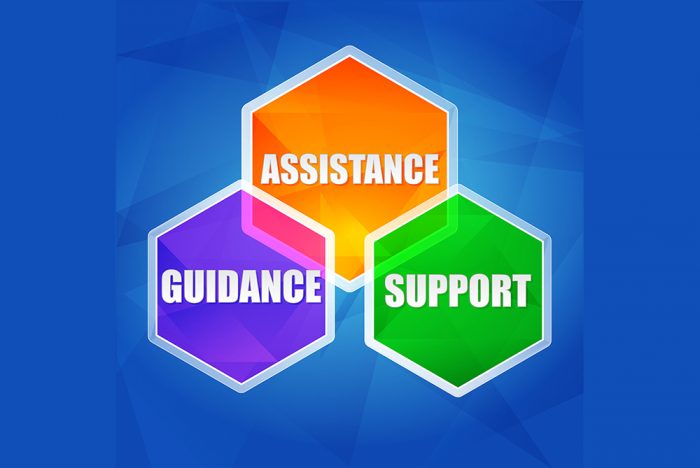IPRC Announces Webinar Series on Sexuality and Disability in Pediatrics
An Overview of Sexuality & Disability in Pediatrics
Tuesday, March 17, 2026
12:00 pm – 1:00 pm EST; 11:00 am – 12:00 pm CST;
10:00 am – 11:00 am MST; 9:00 am – 10:00 am PST
Register Here
A Discipline Specific Approach to Sexuality & Disability in Pediatrics
Tuesday, March 24, 2026
12:00 pm – 1:00 pm EST; 11:00 am – 12:00 pm CST;
10:00 am – 11:00 am MST; 9:00 am – 10:00 am PST
Register Here
Presenters:
Amanda Appel, MD, MPH (Pediatric Rehabilitation Medicine)
Amanda Chestnut, MS, OTR/L, BCP (Occupational Therapy)
Alison Colbert, PhD (Neuropsychology)
Caroline Freer, CCC-SLP (Speech Therapy)
Carolyn Kelley, DPT, PCS (Physical Therapy)
Ann Lantagne, PhD (Rehab Psychology)
Christine Petranovich, PhD (Neuropsychology)
Led by Amanda Appel, MD, MPH, a pediatric rehabilitation medicine physician at Children’s Hospital Colorado, this engaging team will discuss the multi-disciplinary facets of discussing sexuality with children with disabilities.
Objectives — Part 1: At the end of this session, the learner will:
- Understand disparities in reproductive health care and sexual health education for individuals with disabilities;
- Understand the importance of addressing reproductive health and sexual dysfunction for patients with disabilities; and
- Apply the information and feel empowered to start conversations with patients and their families about sex.
Objectives — Part 2: At the end of this session, the learner will:
- Have an increased awareness of sexuality as a component of holistic care;
- Understand discipline-specific considerations related to sexuality and disability;
- Learn practical guidance to promote interdisciplinary collaboration; and
- Apply the information and feel empowered to start conversations with patients and their families about sex.
Audience: This webinar is intended for all interested members of the rehabilitation team.
Level: Beginner-Intermediate
Certificate of Attendance: Certificates of attendance are available for all attendees. No CEs are provided for this course.
Complimentary webinars are a benefit of membership in IPRC/RCPA. Registration fee for non-members is $179. Not a member yet? Consider joining today.
FDA Issues Alert for Medline Updated Instructions for Use With Homecare Beds
The Office of Developmental Programs (ODP) has shared this important announcement from the U.S. Food and Drug Administration (FDA) “FDA MedWatch – Medline Updates Instructions for Use for Homecare Beds.”
This recall involves updating instructions for using devices and does not involve removing them from where they are used or sold. The FDA has identified this recall as the most serious type. This device may cause serious injury or death if you continue to use it without following the updated instructions.
What to Do:
Customers have reported incidents of hand control pendants burning, overheating, melting, sparking, causing electrical shock, and catching on fire only for the Medline Basic Beds identified in the alert. Such incidents pose significant risks, including serious injury and death. The FDA is recommending affected beds be left unplugged from wall power unless adjustments that require electricity need to be made.
For Medline Basic Beds and Medlite Homecare Beds identified, only use accessories intended for use with Medline Homecare Beds.
On November 26, Medline sent all affected customers a letter recommending the following actions:
- To mitigate risk during use, strictly adhere to usage guidelines and safety instructions provided with the product as well as the following instructions:
- Do not operate bed above the specified weight limit.
- Ensure none of the bed components are jammed.
- Ensure that there is no obstruction to the movement of the bed.
- Hang the pendant on headboard or footboard when not in use.
- Do not store the pendant on mattress at any time, including while asleep.
- Unplug the bed and call for service if any of the following occur:
- Bed motors appear to be jammed, stalled, or malfunctioning;
- The bed pendant controls aren’t working;
- Pendant wiring is damaged;
- Pendant becomes hot to the touch; and/or
- Smoke, sparking, or other unsafe electrical conditions occur.
- Only use Medline side rails and Medline accessories that are intended for use with Medline Homecare Beds. When using Medline side rails and Medline accessories, follow all applicable instructions for use.
- Do not use non-Medline side rails or non-Medline accessories, including extension cords, with Medline Homecare Beds. The following Medline Side Rail SKUs are compatible with both the Basic Homecare Beds and the Medlite Homecare Beds:
- MDS89697 (Clamp-On Half Rail)
- MDS89698N (Spring Loaded Half Rail)
- MDS89694N (Spring Loaded Full Rail)
- MDS89695N (Economy Full Rail)
Reason for Correction:
Medline has identified electrical safety risks with its Medline Basic Homecare Beds that may lead to fire.
The electrical safety risk is a potential hazard involving the hand control pendant and associated wires for Medline Basic Homecare Beds, SKUs MDR107002E, MDR107002E-4, MDR107003E, MDR107003E-4, and MDR107003ELO. In certain scenarios — such as operating the bed above its specified weight limit, encountering an obstruction to bed movement, or experiencing jammed components/motor, among other potential conditions — the hand pendant and pendant cords may overheat and, in some instances, pose a risk of fire. Medline Industries has received reports of pendants sparking, burning, melting, smoking, and catching on fire.
As of December 18, Medline has reported 12 injuries and one death associated with this issue.
Additionally, Medline has identified patient entrapment as a potential issue when using non-Medline accessories on Medline beds. Non-Medline accessories or a user error when handling the pendant can unintentionally cause the bed to adjust position, entrapping the user’s body between the bed and the accessory. Entrapment could lead to asphyxiation, serious injury, and death. Patients with reduced monitoring, such as those at home, are at increased risk due to delays in detecting and responding to entrapment incidents.
As of December 18, Medline has reported two injuries and one death associated with the use of non-Medline approved accessories.
Device Use:
An AC-powered adjustable hospital bed is a device intended for medical purposes that consists of a bed with a built-in electric motor and remote controls that can be operated by the patient to adjust the height and surface contour of the bed. Hospital beds include side rails that can be latched on or off and moved around.
Contact Information:
Customers in the U.S. with adverse reactions, quality problems, or questions about this recall should contact Medline Industries at 866-359-1704 or via email.
For additional information and specific models affected, visit the FDA’s website.
Registration Now Open for Spring/Summer 2026 ODP QM Certification Classes
The Office of Developmental Programs (ODP) has shared ODPANN 26-024. This announcement provides information on how to register for new 2026 Quality Management (QM) Certification virtual classes.
Key things you should know about the virtual class:
- Class size is limited to 32 participants.
- Classes are held over 2 consecutive days, from 9:30 am – 2:30 pm.
- Prerequisite modules are required to prepare learners for the class and must be completed prior to attending class.
Spring/Summer 2026 Class Dates:
- April 27 – 28
- May 11 – 12
- June 15 – 16
- July 13 – 14
- July 27 – 28
Register here. Please review the announcement for more details.
OCDEL Publishes FY 2025/26 Early Intervention Fee Schedule With 7% Rate Increase
The Fiscal Year (FY) 2025/26 budget signed by Governor Josh Shapiro included an additional $13.2 million in state funding for Early Intervention (EI) services, with $10 million of this funding specifically targeting provider rates.
Last Friday, the Office of Child Development and Early Learning (OCDEL) released the 2025/26 Fee Schedule, which included a 7% increase for Early Intervention services, with some exceptions.
Infant Toddler Early Intervention Programs and providers should now use the updated Fiscal Year 2025/26 fee schedule rates to bill for all services delivered on or after July 1, 2025. OCDEL will coordinate with County programs to communicate a Mass Adjustment coordination with all Early Intervention providers for services already billed that are eligible for a rate adjustment.
This news comes after months of joint advocacy from RCPA, EIPA, PennAEYC, and other EI provider groups. RCPA is grateful for these strong partnerships, and we recognize this commitment to investment in the Early Intervention Part C Program by Governor Shapiro, OCDEL, and the PA General Assembly.
Reminder: MyPBC Portal Data Submission Window Now Open
ODP Residential Providers are reminded that the ODP MyPBC Portal is now open for providers to submit their Performance-Based Contracting (PBC) data. The portal will remain open for providers to submit their data until March 16, 2026, at 11:59 pm.
ODP held a training for the MyPBC Portal system for Residential Service Providers. The recording of this session can be found here.
Please view ODPANN 26-017 for more details.
On Demand Access to ANCOR’s Trends Webinar Series Open to RCPA Members
PADDC Seeks Your Input on Draft Goals for 2027–2031 Five-Year Plan

The Pennsylvania Developmental Disabilities Council (PADDC) is seeking public input on goals and objectives for its next 5-year plan (2027–2031). Over the past 14 months, PADDC has:
- Gathered public feedback on barriers and concerns that impact the lives of individuals with developmental disabilities and their families in Pennsylvania;
- Distributed surveys and conducted listening tours; and
- Analyzed state data, services, and challenges to identify unmet needs for individuals with developmental disabilities and their families.
The results of these activities led PADDC to develop goals and objectives in the following focus areas: self-advocacy; information sharing; and services and supports. Before the plan is finalized, the Council is seeking public comments to ensure they are considering a variety of viewpoints.
PADDC invites you to take its survey by March 27, 2026. Complete the survey here.
CHCS Shares Federal Rural Health Transformation Plan Resources

RCPA has been a long-time partner of the Center for Health Care Strategies (CHCS), a policy design and implementation organization devoted to improving outcomes for people enrolled in Medicaid. Our collaborative efforts across the arena of Medicaid and the pending impacts of HR 1 remain a critical connection point to ensure access in Pennsylvania.
On behalf of CHCS, RCPA would like to share this update on resources related to the Rural Health Transformation Project. Per the update:
The federal Rural Health Transformation Program (RHTP), authorized under the 2025 budget reconciliation act (P.L. 119-21), will distribute $50 billion to all 50 states from 2026 to 2030 — serving as a partial offset to Medicaid cuts. In designing and launching RHTP plans, state agencies must meet ambitious federal expectations and timelines. Experiences from other large-scale statewide efforts — such as the American Rescue Plan Act, Opioid Settlement Funds, multisector plans for aging (MPA), and the Centers for Medicare & Medicaid Services’ (CMS) State Innovation Models (SIM) demonstration — can help inform state planning.
This brief provides practical recommendations to help states establish the administrative infrastructure needed to implement their RHTP plans. Drawing on insights from state officials involved with similar transformation efforts, as well as the Center for Health Care Strategies’ (CHCS) experience supporting this work, the brief highlights best practices and common pitfalls across four core domains:
- Governance;
- Stakeholder engagement and communications;
- Budget tracking, reporting, and contracting; and
- Data and evaluation.
While not exhaustive, this brief outlines practical lessons that state staff can use to guide RHTP activities during the critical first six to nine months of program design and implementation, helping states build a strong foundation for long-term success.
Additionally, CHCS published a series of tip sheets to aid stakeholders in exploring strategies and initiatives within the project. The tip sheets offer resources for strengthening rural health, including workforce and access issues.
If members have any questions regarding this update or the Rural Health Transformation Plan, please contact RCPA COO Jim Sharp.
Share Your Strategies and “Promote Possibilities” at the 2026 RCPA Conference!
RCPA continues to seek proposals for the 2026 Annual Conference Power in Purpose: Promoting Possibilities, which will be held September 29 – October 2 at the Hershey Lodge for a statewide audience. RCPA’s Conference Committee is looking for workshop proposals in every area for possible inclusion, particularly those that assist providers in developing and maintaining high-quality, stable, and effective treatments, services, and agencies in an industry where change is constant. The committee looks for presentations that:
- Discuss strategies for C-Suite leadership to advance their organization with adapting to challenges and opportunities;
- Provide guidance on building a culture of a committed workforce, including recruitment and employee development as well as effective remote workforce strategies;
 Highlight new policy, research, and treatment initiatives, such as the use of artificial intelligence and technology in service provision;
Highlight new policy, research, and treatment initiatives, such as the use of artificial intelligence and technology in service provision;- Provide specific skills and information related to individual and organizational leadership development and enhancement;
- Discuss advanced ethics practices and suicide prevention; and/or
- Address system changes that affect business practices, including integrated care strategies, value-based purchasing, performance-based contracting, acquisitions and mergers, and alternative payment models.
The committee welcomes any proposal that addresses these and other topics essential to brain injury, medical rehabilitation, mental health, substance use disorder treatment, children’s health, aging, physical disabilities, autism, and/or intellectual/developmental disabilities. Members are encouraged to consider submitting, and we highly encourage you to forward this opportunity to those who are exceptionally good speakers and have state-of-the-art information to share.
The Call for Proposals (featuring a complete listing of focus tracks) and accompanying Guidelines for Developing Educational Objectives detail requirements for submissions. The deadline for submissions is COB Monday, March 23, 2026. Proposals must be submitted electronically with the form provided; confirmation of receipt will be sent. Proposals submitted after the deadline may not be considered.
 If the proposal is accepted, individuals must be prepared to present on any day of the conference. Workshops are 90 minutes in length. If the topic requires an in-depth presentation, a double session can be scheduled for a total of 180 minutes. At the time of acceptance, presenters will be asked to confirm the ability to submit workshop slides and handouts electronically two weeks prior to the conference. Individuals unable to meet this expectation may not have their materials available to participants during the conference.
If the proposal is accepted, individuals must be prepared to present on any day of the conference. Workshops are 90 minutes in length. If the topic requires an in-depth presentation, a double session can be scheduled for a total of 180 minutes. At the time of acceptance, presenters will be asked to confirm the ability to submit workshop slides and handouts electronically two weeks prior to the conference. Individuals unable to meet this expectation may not have their materials available to participants during the conference.
Individuals are welcome to submit more than one proposal; however, we ask that you submit no more than three total. Notification of inclusion for the conference will be made via email by Monday, May 11, 2026. Questions may be directed to Carol Ferenz, Conference Coordinator.
















